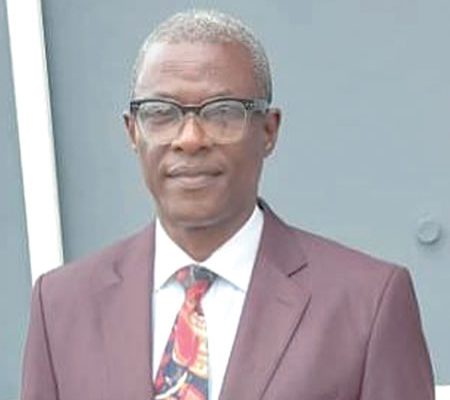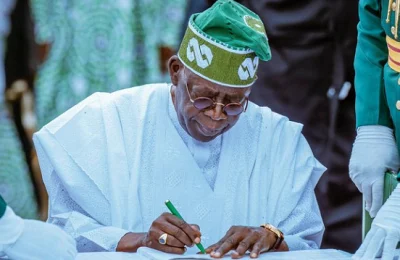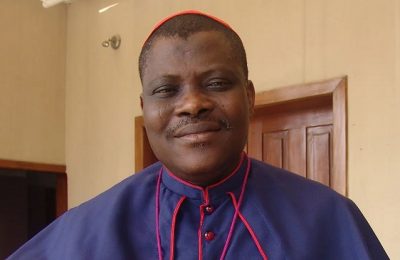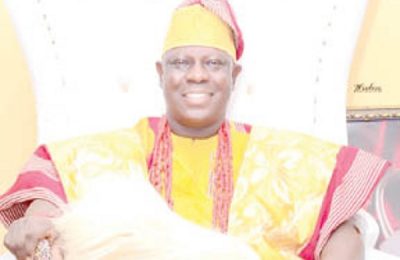
Mr Franklin Erinle is the General Secretary of the Federal Parastatals and Private Sector Pensioners Association of Nigeria (FEPPPAN). With CHRISTIAN APPOLOS, he speaks on issues and challenges faced by pensioners.
WHAT is the background of FEPPPAN and what led to its formation?

FEPPPAN, which stands for the Federal Parastatals and Private Sector Pensioners Association of Nigeria (FEPPPAN), is the product of a critical restructuring or regrouping exercise that was initiated by the Minister of Labour and Employment in March 2020. This restructuring was not done on a whim but was borne out of necessity, stemming from years of accumulated complaints from various groups of pensioners. These complaints date as far back as 2015, when pensioners, particularly those affiliated with Nigeria Union of Pensioners (NUP) and other independent groups, expressed dissatisfaction with the way things were being handled.
Many of these groups were pressing for independent registration as pensioners’ unions to better cater to their needs. However, the minister, in his wisdom, recognised that breaking these groups into smaller, individual unions might not be the most effective solution. Instead, he decided that a reorganisation or regrouping of the NUP under the Trade Unions Act of 2004 (as amended) would create a more streamlined and efficient structure for the betterment of all pensioners.
As a result, three separate pensioners’ unions emerged from this exercise: Federal Parastatals and Private Sector Pensioners Association of Nigeria (FEPPPAN), Nigeria Union of Pensioners (NUP) and Contributory Pensioners Union of Nigeria (CPUN).
In essence, FEPPPAN was borne out of the need to address inefficiencies and ensure that pensioners, particularly from federal parastatals and some private sector organisations, had a platform that represented their unique needs and challenges. Our mission is to be more inclusive, transparent and proactive in addressing the concerns of pensioners in these sectors.
What makes FEPPPAN different from other pensioners’ unions, particularly the NUP?
What truly sets FEPPPAN apart is not just the specific demographic of pensioners we represent: those from federal parastatals and private sector organisations, but also the way we approach leadership and administration. FEPPPAN was created to offer something distinct; a system where pensioners are at the helm, taking care of fellow pensioners. This structure fosters a deep understanding of the unique issues and pain experienced by our members. After all, who better are to understand where the shoe pinches than those who wear it themselves?
We are acutely aware that pensioners face a variety of issues, ranging from delayed payments to inadequate medical care and we believe that those issues should be tackled by people who have firsthand experience. This is why we have built an inclusive administration, where every member’s voice is respected and decisions are made collectively with the dignity of our members in mind.
In FEPPPAN, we pride ourselves in having a participatory leadership model. We ensure that the right people, those who have the required expertise and a genuine passion for improving the lives of pensioners, are placed in positions of leadership. This ensures that we maintain a high standard of governance, with a focus on transparency and accountability.
We also aim to break away from the monopolistic structure of the past. Before the creation of FEPPPAN, many pensioners felt they didn’t have a choice but to join NUP. However, just as a competitive market fosters innovation and improvement, the introduction of FEPPPAN gives pensioners an alternative. Competition between unions ensures that the needs of pensioners are better served, as each union strives to be the best. This is why I see FEPPPAN as best pensioners’ union in Nigeria
What are some of the major challenges FEPPPAN has encountered since its formation?
Like any organisation in its infancy, FEPPPAN has faced its fair share of challenges. I would categorise these challenges into three broad areas: teething problems, opposition from the NUP and funding issues.
As with any new organisation starting from ground zero, the early stages were slow. Much like a toddler learning to crawl before walking, FEPPPAN had to establish itself from scratch. We faced several operational hurdles, including setting up an administrative structure, establishing a presence across the country and gaining the trust of pensioners who had been accustomed to the old system. It has been a gradual process, but I am proud to say that we have moved past the crawling stage and are now walking, steadily building our capacity to serve pensioners.
One of the most significant challenges we have faced is the opposition from the Nigeria Union of Pensioners (NUP). From the moment FEPPPAN was registered, NUP has resisted our existence. They filed two cases against us at the National Industrial Court, challenging our registration. However, by the grace of God, FEPPPAN was victorious in both cases. Despite these victories, the NUP has not relented and is currently pursuing the matter at the Court of Appeal. It has been almost five years since our registration and we are still dealing with legal battles. Nevertheless, we have extended an olive branch to NUP, urging them to end the hostility so that we can work together. Ultimately, our goal should be the same: the betterment of Nigerian pensioners. We believe that by working together, we can achieve much more.
Funding has been another significant hurdle for FEPPPAN. As it stands, we are not receiving the proper level of funding that is necessary to run our operations effectively. The issue stems from the fact that many of our willing members’ union dues are not being deducted by the Pension Transitional Arrangement Directorate (PTAD). Additionally, there are still many parastatal pensioners who are, for various reasons, still affiliated with NUP and their dues are not being directed to FEPPPAN. However, we are beginning to see light at the end of the tunnel. PTAD’s check-off dues (CoD) policy, which is in line with the law, should soon rectify this issue. Once it is fully implemented, we expect that FEPPPAN will be receiving the funding it needs to operate at its full potential.
Are there other internal challenges that FEPPPAN has faced?
Like any organisation, we have had our share of internal human problems. As with any group, clashes of interest and personal ambitions sometimes get in the way of the greater good. It is human nature. But it is critical that individual goals do not stand in the way of the progress of the group as a whole.
In FEPPPAN’s case, we identified such issues within our leadership over a year ago. It was a situation where certain individuals were allowing their personal interests to interfere with the smooth running of the union. We dealt with the issue head-on and resolved it. Now, we are more united and focused on the common goal of advancing the interests of pensioners. I believe that such problems will not resurface, as we have learned from our past and put systems in place to prevent them from happening again.
It is also worth mentioning that FEPPPAN has been operating under an interim government since its inception. However, we are on the cusp of a significant change. In about a month, we will be transitioning to a permanent leadership structure. This is a major milestone for us and we are confident that this new structure will bring even greater stability and direction to the organisation.
What do you envision as the future of FEPPPAN in the coming years?
The future of FEPPPAN is bright and I am optimistic about where we are headed. One of the most encouraging signs is that more parastatal pensioners are beginning to take their rightful place within FEPPPAN. We are seeing more engagement from our members, which is a positive development for the union.
I also believe that the current situation between FEPPPAN and NUP will eventually improve. While there has been hostility, we remain open to cooperation. As an affiliate of the Nigeria Labour Congress (NLC), FEPPPAN’s voice will be amplified and I am confident that our issues will receive the attention they deserve from the Federal Government.
Once we establish our permanent leadership structure, I am confident that the new team will carry the flag of FEPPPAN even higher. They will continue the work we have started, pushing for better treatment of pensioners and ensuring that our members receive the benefits and respect they are entitled to.
What message do you have for parastatal pensioners who have not yet joined FEPPPAN?
The simple truth is that FEPPPAN was created for all federal parastatal and private sector pensioners; there is no need to ask them to join as the government has already regrouped them into FEPPPAN. In essence, they already belong here. However, we understand that many pensioners are on what we call “union vacation.” They may not have officially joined FEPPPAN yet, we are confident that they will come on board soon.
For some, human factors, such as loyalty to the old union or lack of understanding of the benefits of joining FEPPPAN, have kept them away. But we are confident that as we continue to demonstrate our proactive administration and participatory leadership, more and more pensioners will recognise the value of being part of FEPPPAN. Our efforts to engage with and support our members will be the driving force that brings them to where they truly belong.
Furthermore, I would emphasise that staying outside of FEPPPAN is somewhat of an anomaly. The government has already regrouped all federal parastatal pensioners under FEPPPAN. So, we are not asking for something unusual or outside the framework—they are already part of FEPPPAN by default.
For those still affiliated with the NUP or who have not officially recognised their belonging to FEPPPAN, it is only a matter of time before they come around. Our open and inclusive leadership model, coupled with our commitment to addressing pensioners’ concerns, will continue to attract pensioners who are looking for a union that truly represents their interests.
For those currently facing personal or bureaucratic challenges that are keeping them from joining, we encourage them to reach out to us. We are here to listen, to work with them and to find ways to make their transition to FEPPPAN as seamless as possible. We want all parastatal and private sector pensioners to feel at home with us, because FEPPPAN was created for them and it exists to serve them.
What role does the government play in FEPPPAN’s success and how can government’s support be improved?
The government has played a pivotal role in the creation of FEPPPAN and in many ways we can consider FEPPPAN to be the government’s brainchild. The decision to regroup pensioners was a visionary move and it laid the foundation for what FEPPPAN has become today. By dividing pensioners into three unions – FEPPPAN, NUP and CPUN – the government aimed to create a more efficient and responsive system that could better cater to the needs of different categories of pensioners.
As the “baby of the government” so to speak, FEPPPAN has a unique relationship with various government bodies, including the Ministry of Labour and Employment and the Pension Transitional Arrangement Directorate (PTAD). However, there is still more that can be done to support our growth and ensure that we are able to fulfill our mandate to the fullest extent.
One key area where we need continued government support is in the enforcement of the check-off dues (CoD) policy by PTAD. While the policy is aligned with existing laws, its full implementation has yet to materialise. We are urging PTAD to courageously implement this policy so that all dues from our members are properly deducted and remitted to FEPPPAN. This will provide us with the funding we need to carry out our operations effectively and ensure that we are able to provide the best possible services to our members.
Additionally, we are calling on the Minister of Labour and Employment to continue upholding strict compliance with labour laws, especially as they relate to the rights and responsibilities of pensioners. When the government ensures that labour laws are properly implemented and enforced, it creates an environment where unions like FEPPPAN can thrive and pensioners can be assured that their rights are being protected.
What is next for FEPPPAN? What can members look forward to in the near future?
The future of FEPPPAN is filled with exciting possibilities. One of the most immediate developments is our upcoming National Delegates Conference (NDC), which is scheduled to take place in Abuja in October 2024. This conference will be a significant milestone for us as it will solidify FEPPPAN’s structure and ensure that all sectors are actively participating in the government of the association. It will be a platform for setting the agenda for the years to come and for electing a permanent leadership team that will guide FEPPPAN into the future.
Beyond the NDC, we are looking to overhaul and strengthen our capacity to handle any issues concerning pensions and pensioners. We plan to engage more meaningfully and proactively with the government and our labour centre, the Nigeria Labour Congress (NLC). This engagement is crucial because it allows us to advocate for our members at the highest levels of government and ensure that their voices are heard.
We also intend to expand our outreach efforts to bring more pensioners into the fold. As more federal parastatal and private sector pensioners join us, FEPPPAN will continue to grow in strength and influence. Our proactive efforts in administration and our commitment to inclusivity will serve as the driving force behind our growth.
Ultimately, FEPPPAN, to the glory of Almighty God, will become the pride of all pensioners in Nigeria. We envision a future where pensioners are treated with the respect and dignity they deserve, where their financial and health concerns are addressed swiftly and efficiently and where their contributions to society are fully recognised and appreciated.
We are committed to making that vision a reality and we invite all pensioners to join us in this journey. Together, we will build a stronger, more unified and more prosperous future for pensioners in Nigeria.
READ ALSO: Independence Day: IGP Egbetokun orders water-tight security nationwide







